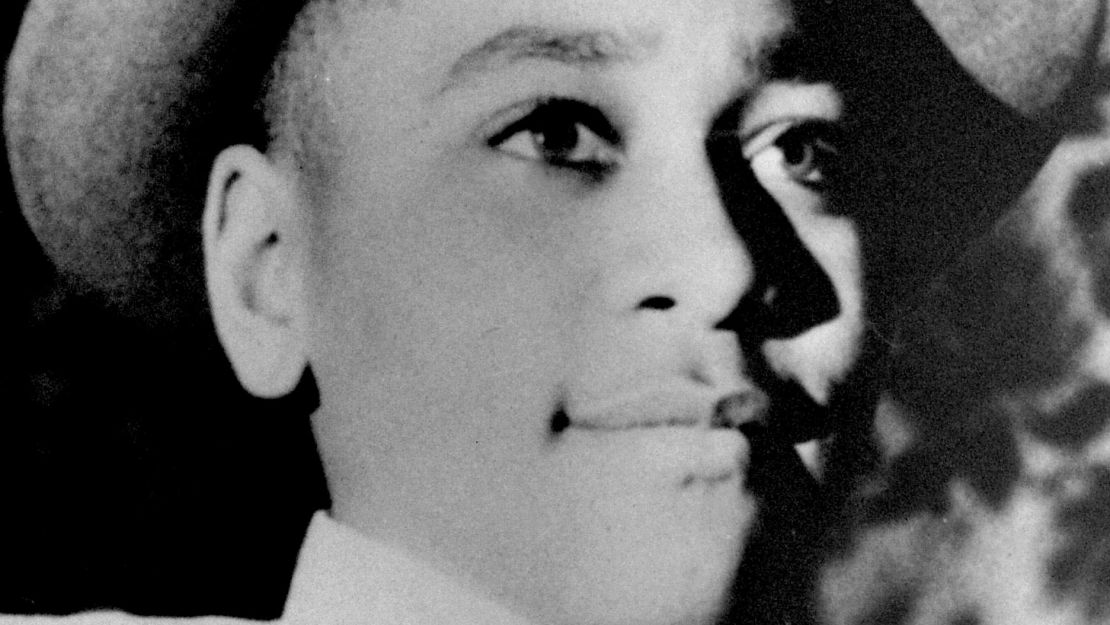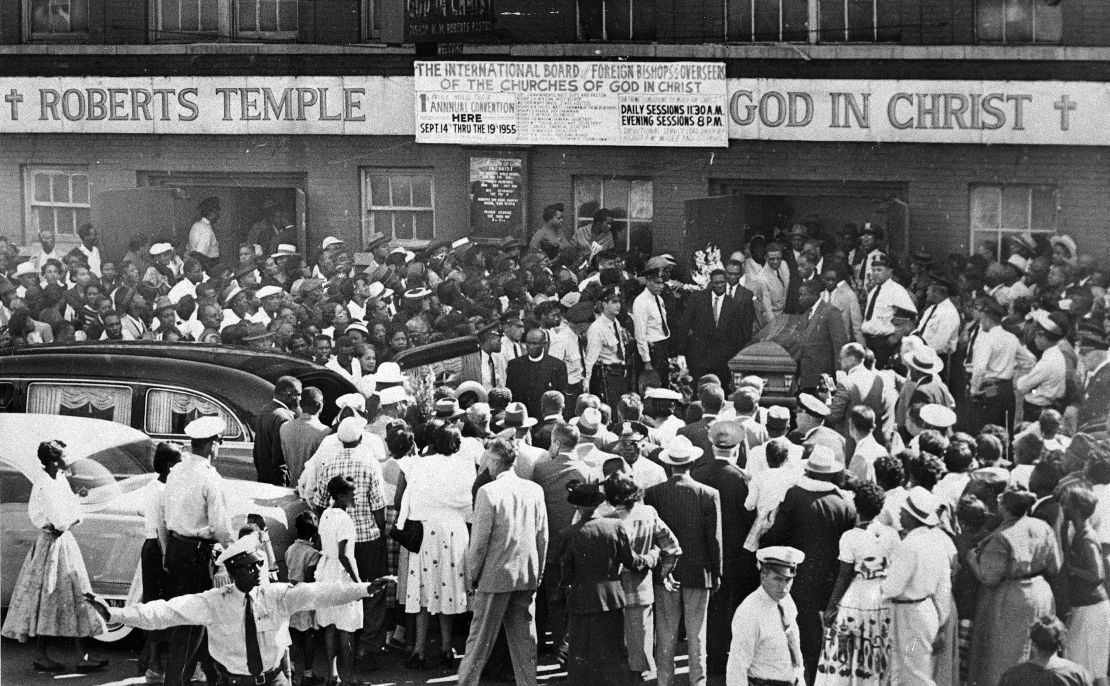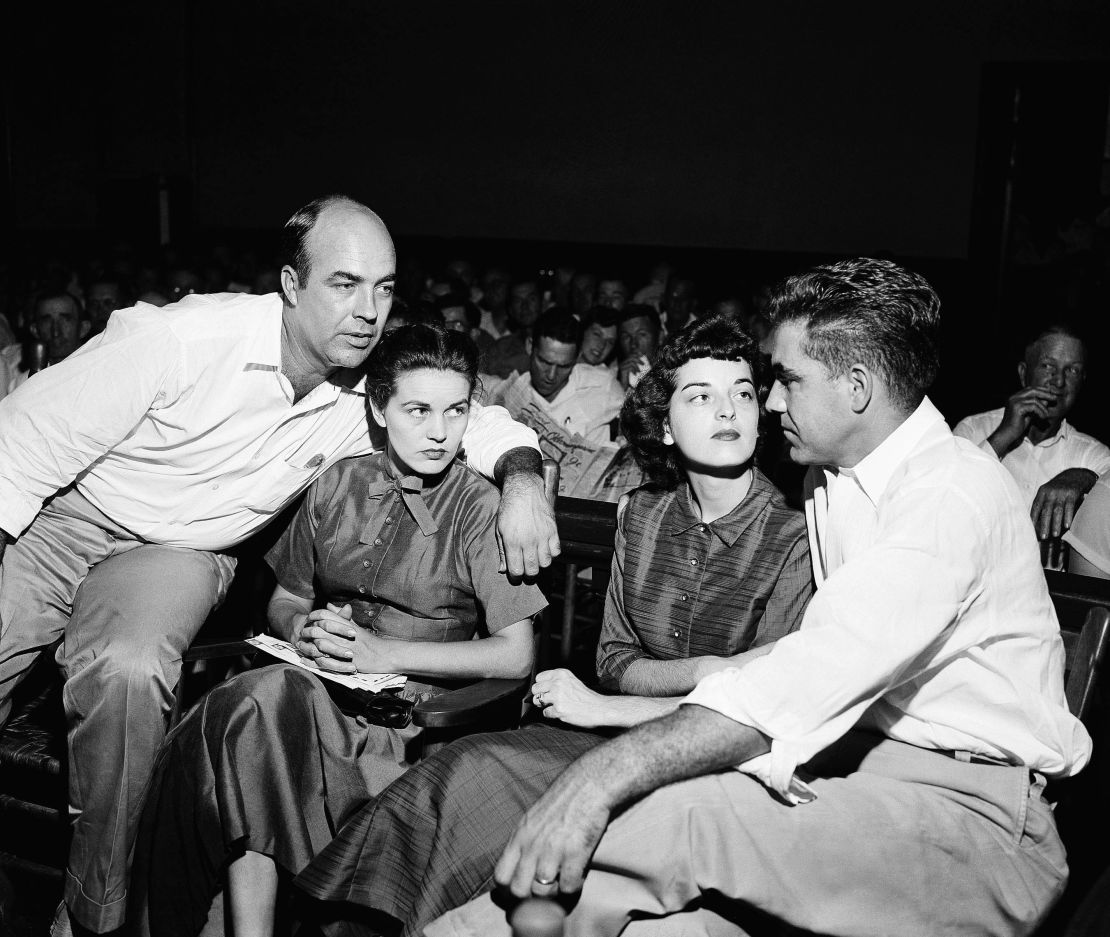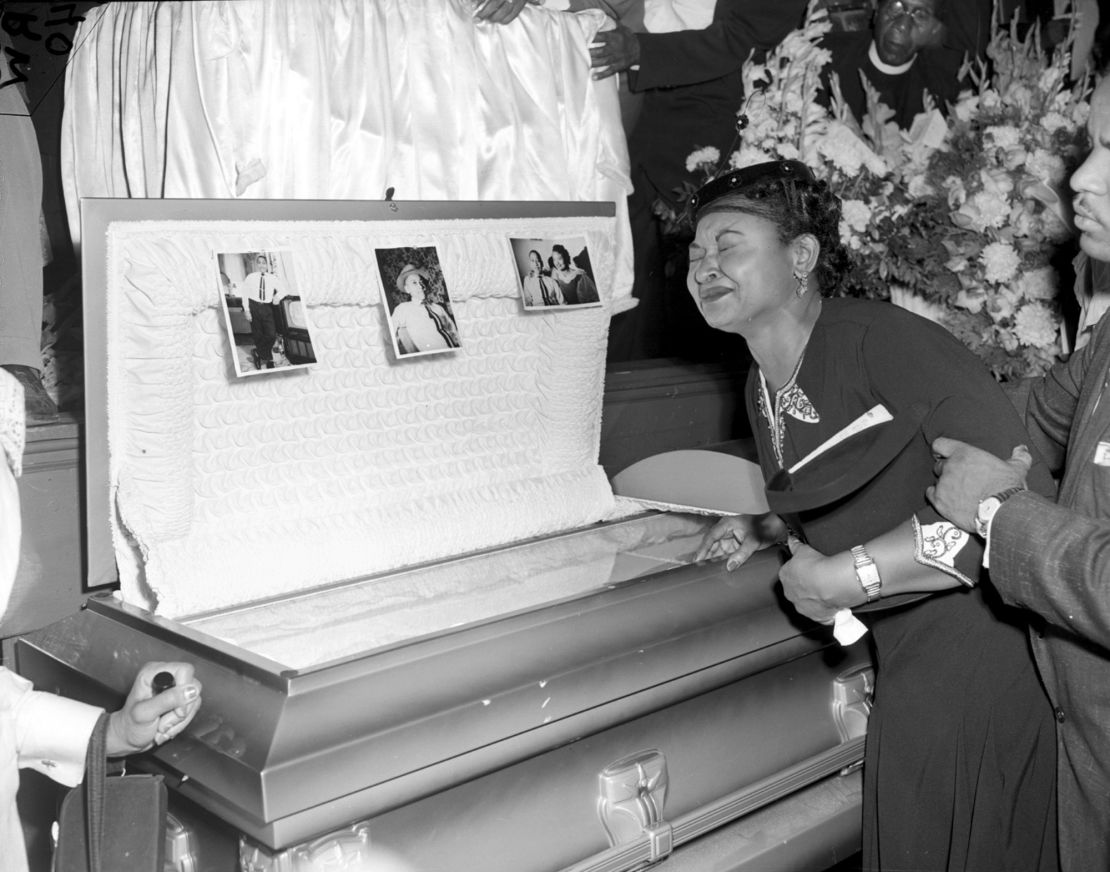The investigation of the murder of 14-year-old Emmett Till, barbarous even in an era in which blacks in the South were subjected to untold viciousness, has been reopened based on “new information,” according to a US Justice Department report to Congress.
The 1955 slaying was listed in a March report among “activities” the department was pursuing under the 2007 unsolved civil rights crime act that bears Emmett’s name. The act paves the way for the department to “expeditiously investigate” unsolved pre-1980 civil rights murders.

“Several interested parties” asked the Justice Department in 2004 whether any surviving suspects could be prosecuted. After reviewing available information, the department determined that the statute of limitations prevented any federal prosecution, according to the report. Three years later, a Mississippi grand jury declined to issue new charges.
“The Till case has been reopened by DOJ based upon the discovery of new information,” the department said in March. It did not elaborate. The department declined to comment on the matter.
The murder and acquittal
Known as “Bobo” to those who loved him, Emmett’s savage murder jolted a nation, spurring it to action on civil rights. Gruesome photos of the boy’s mutilated body spread across the globe, lending jarring visuals to the stories of violence and discrimination coming out of the South.

Ninety-five days after the attack, Rosa Parks refused to give up her seat on a bus in Montgomery, Alabama.
Emmett’s crime? He had been accused – we now know, falsely – of flirting with and making advances at then-21-year-old Carolyn Bryant, who, along with her husband, Roy, owned a grocery store in Money, Mississippi. Emmett had traveled there from Chicago to visit his great-uncle, who lived in the area.
Four days later, on August 28, 1955, Roy Bryant and his half-brother, J.W. Milam, rousted Emmett from his bed in the middle of the night, ordered him into the bed of a pickup and eventually beat him viciously before shooting him in the head.
His murderers then strapped a 75-pound cotton gin fan to his neck with barbed wire so it would weigh him down when they tossed him in the Tallahatchie River.
Not a month after the boy’s body was pulled from the river, an all-white jury acquitted Bryant and Milam of Emmett’s murder, despite eyewitnesses identifying the defendants and the men confessing to kidnapping the teen. Testifying for the defense, Carolyn Bryant offered incendiary testimony accusing Emmett of grabbing and verbally threatening her. Deliberations took barely an hour, with one juror claiming the acquittal could’ve come sooner had they not stopped to have a soda.
In closing arguments, the defense team appealed to jurors’ heritage, saying their ancestors would turn in their graves if they didn’t free these fine, white men. Weeks later, a grand jury would decline to indict Bryant and Milam on kidnapping charges.
The confession
Bryant and Milam told a reporter the following year how they killed Emmett and dumped his body in the Tallahatchie, but because of double jeopardy laws, they couldn’t be tried again.

In a January 1956 Look magazine article, titled, “The shocking story of approved killing in Mississippi,” Bryant and Milam said they went looking for the “Chicago boy” with the initial intent of scaring him and putting him in his place.
But Emmett didn’t scare. He was unflappable; he wouldn’t even “holler” when they pistol-whipped him – and that just couldn’t stand, Milam said, according to a copy of the article archived by PBS.
At one point, the men recalled, Emmett told them, “You bastards, I’m not afraid of you. I’m as good as you are. I’ve ‘had’ white women. My grandmother was a white woman.”
Milam said Emmett’s insolence in the face of their attempts to frighten him left them with no choice, the magazine reported:
Bryant and Milam took Emmett out to the river bank and made him strip, and his final moments went like this, according to the magazine:
“Milam: ‘You still as good as I am?’
“Bobo: ‘Yeah.’
“Milam: ‘You still “had” white women?’
“Bobo: ‘Yeah.’
“That big .45 jumped in Big Milam’s hand. The youth turned to catch that big, expanding bullet at his right ear. He dropped.”
Open casket
Emmett’s mother, Mamie Till-Mobley, was horrified to see the state of her son’s body when it was returned to her. Against advice, she demanded that his funeral be open casket. She wanted “all the world” to see what she saw, how her boy had been maimed beyond recognition.
Tens of thousands witnessed his injuries over four days, and Jet magazine published images of Emmett’s swollen and disfigured face for the world to see. His mother had forbidden the mortician from any attempts to touch up his injuries.

Milam died in 1980. Roy Bryant died in 1994.
Emmett’s death remains a symbol of “enduring American injustice” to this day, said Duke University scholar Timothy Tyson, author of “The Blood of Emmett Till.” The book included the bombshell admission from Carolyn Bryant – by then, Carolyn Bryant Donham – that she made up the damning allegations of Emmett’s verbal and physical advances.
In a news conference Thursday, Tyson said he spoke to Carolyn Bryant twice in 2008 at the invitation of her family. They didn’t want her to die without saying a word about it, and she seemed to be in a “sorrowful state of mind” about what happened to Emmett, he said.
Tyson surmised that the newly discovered evidence cited by DOJ could be her admission. But it was hardly new, he said. He handed over records of the interview as well as other research for his book to the FBI in 2017, after his book published.
Even so, her admission “wasn’t the morning news to me,” Tyson said. “I think everybody’s known that since 1955. Nobody thought she was telling the truth to begin with and they didn’t choose to prosecute her then.”
Besides, more damning evidence was obtained by the FBI before then, including an interview with one of Emmett’s killers, he said. He suggested that the timing of the announcement had more to do with creating a distraction from controversy over the Trump administration’s policies related to immigration and other civil rights issues. And with the main perpetrators dead, no one living will have to suffer consequences, he said.
“It makes a good announcement and yet there’s no one to prosecute,” he said. “This is a low-cost thing and they’re in desperate need of political cover for their essentially neo-Confederate race politics.”
Who could face consequences?
Priscilla Sterling, a cousin of Emmett and founder of the Emmett Till Justice for Families Foundation, said she did not find out that the case had been reopened until Thursday, when friends and relatives called her. They had the same question: Would Carolyn Bryant be prosecuted for lying?
Sterling said she hopes so, or at least that she faces obstruction of justice charges, she said. The Till family has been calling for charges against Carolyn Bryant since Tyson’s book came out. Since then, Sterling said she has been “harassed and stalked by white supremacists.” And while she’s happy to hear the case is under review again, she’s worried about further harassment.
“I’m glad it’s being talked about and discussed, with the division this country is experiencing and white supremacist guys thinking they can do everything. If this case is talked about and discussed maybe they will be stopped.”
Another cousin, Wheeler Parker, said he hopes Emmett’s name can be cleared soon and prove that “he didn’t die in vain.”
Correction: Earlier versions of this story mistakenly indicated Carolyn Bryant has died.
CNN’s Laura Jarrett, Kaylee Hartung and Michelle Krupa contributed to this report.















